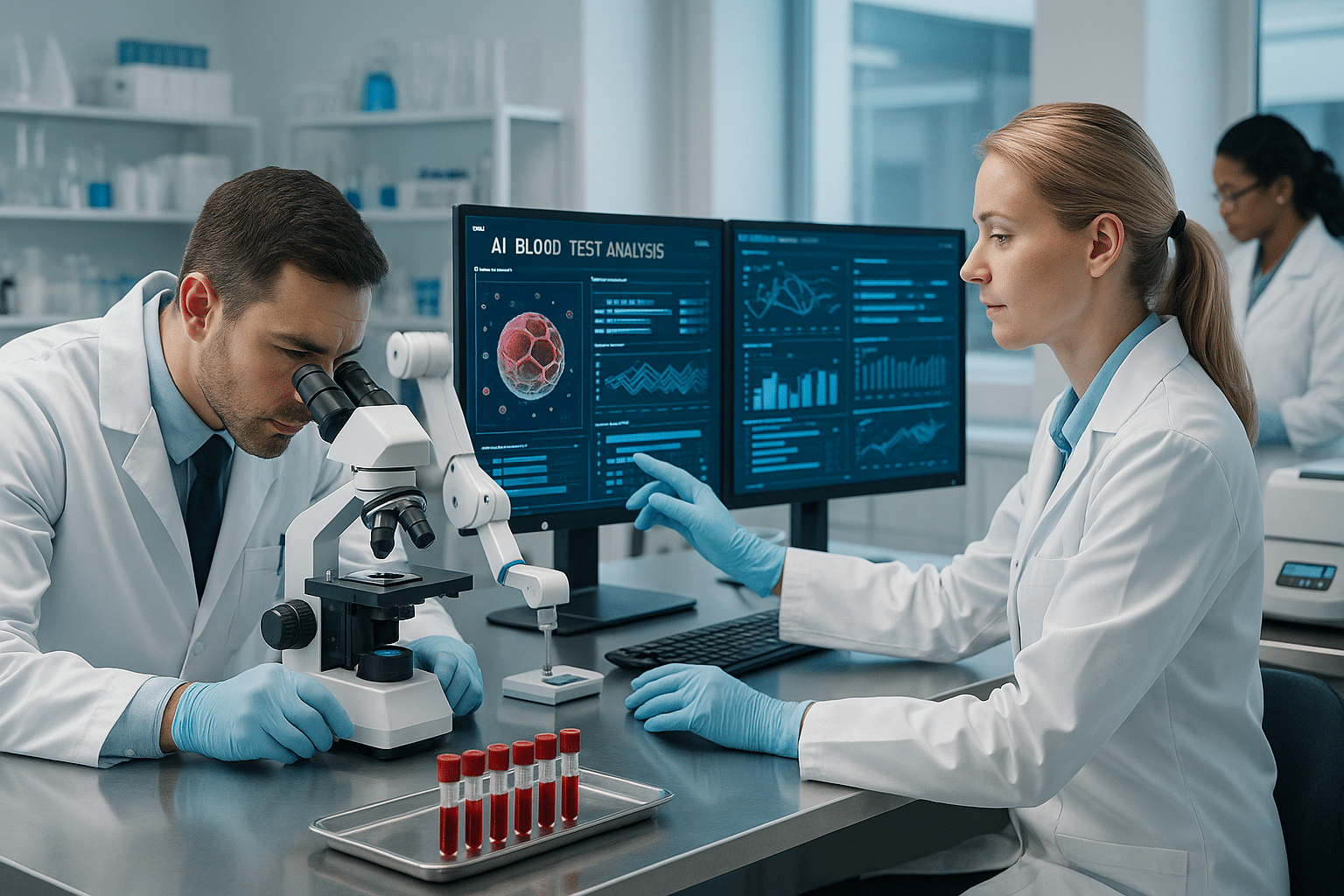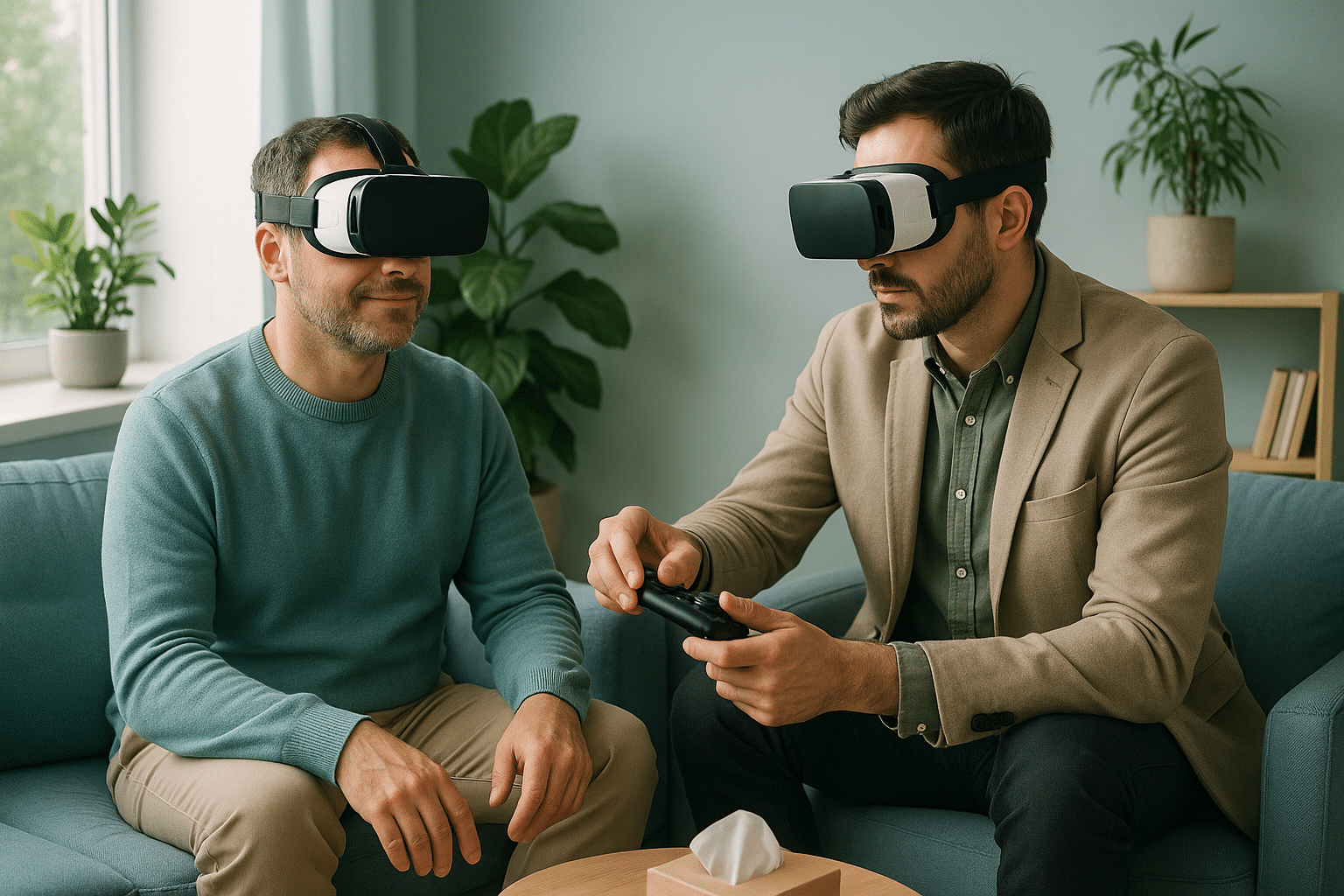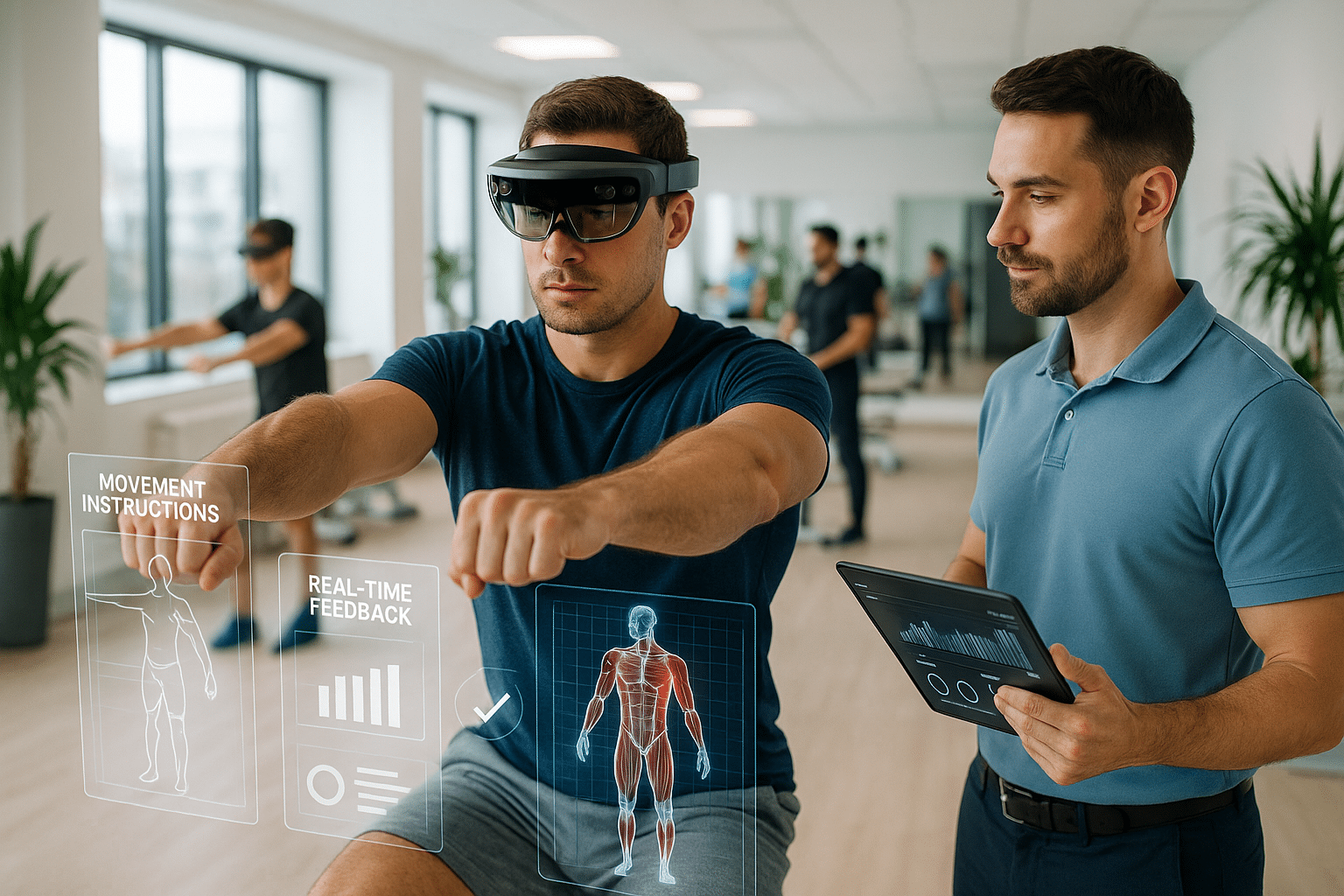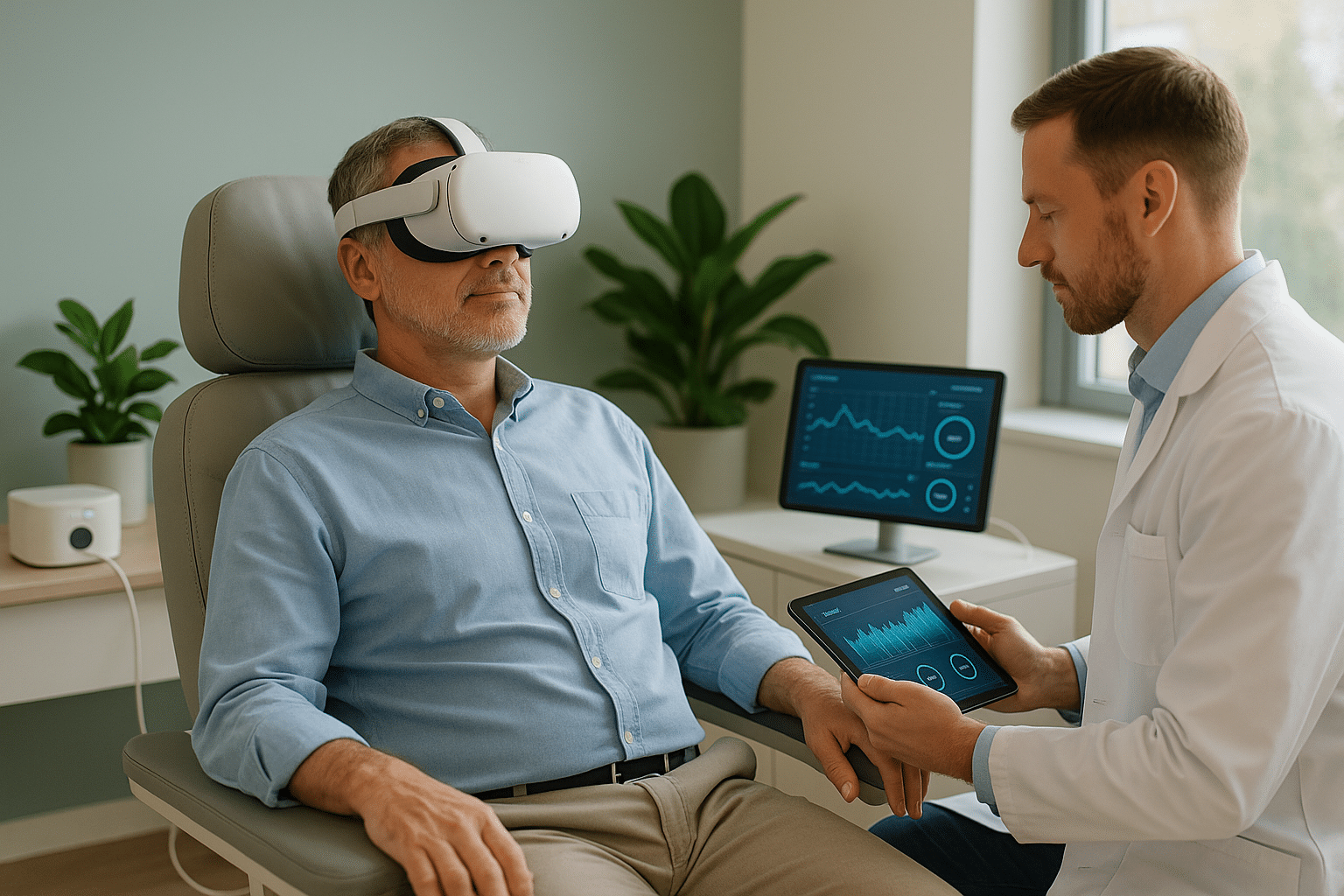In a world where technology continually reshapes the contours of our lives, the healthcare sector stands at the forefront of groundbreaking innovations. Among these, artificial intelligence (AI) emerges as a powerful catalyst, particularly in the realm of blood test analysis. Imagine a future where diagnosing complex health conditions is faster, more accurate, and personalized to each patient. Sounds like science fiction? It’s becoming a reality, and AI is the driving force behind this transformation. 🩺
Blood tests are fundamental to modern medicine, offering crucial insights into our health. Yet, traditional analysis methods, while effective, are not without their limitations. They often require manual interpretation, are prone to human error, and can be time-consuming. This is where AI steps in, revolutionizing the way we understand and utilize blood test data.
But why is AI such a game-changer in this field? To start, AI algorithms can analyze vast amounts of data with unprecedented speed and precision. This capability not only enhances the accuracy of diagnoses but also enables the detection of subtle patterns and anomalies that might be missed by the human eye. Moreover, AI can integrate various data points, offering a comprehensive view of a patient’s health status.
In this article, we will delve into the myriad ways AI-powered blood test analysis is transforming healthcare. We’ll explore how AI is being used to detect diseases earlier and more accurately than ever before. Early detection is crucial, particularly for diseases like cancer, where timely intervention can significantly improve patient outcomes. 🔬
Next, we’ll discuss personalized medicine, an area where AI is making a substantial impact. By analyzing individual genetic markers and lifestyle factors through blood tests, AI can help tailor treatments to the unique needs of each patient, moving away from the one-size-fits-all approach that has dominated healthcare for decades.
Another exciting development is AI’s role in monitoring and managing chronic conditions. For patients with diseases such as diabetes or cardiovascular issues, regular monitoring is essential. AI can streamline this process, providing real-time analysis and recommendations based on blood test results, thus empowering patients to take control of their health.
The integration of AI in blood test analysis also brings significant benefits to healthcare providers. By automating routine tasks, AI allows medical professionals to focus on what they do best: patient care. This not only improves efficiency but also reduces costs, making quality healthcare more accessible to all. 🏥
Of course, no discussion of AI would be complete without addressing the challenges and ethical considerations. While the benefits are clear, the use of AI in healthcare raises questions about data privacy, security, and the potential for bias in algorithms. We’ll examine these issues and discuss how the industry is working to overcome them, ensuring that AI is used responsibly and equitably.
Finally, we will look to the future, envisioning how AI might further revolutionize blood test analysis and, by extension, the entire healthcare landscape. With advancements in technology, the possibilities are limitless. AI has the potential not only to transform how we diagnose and treat diseases but also to fundamentally change our approach to health and wellness.
Join us on this journey as we explore the fascinating intersection of AI and healthcare, and discover how this technology is paving the way for a healthier, more efficient future. By the end of this article, you’ll have a deeper understanding of how AI is set to redefine what we know about blood test analysis and why it holds such promise for the future of medicine. 🌟
I’m sorry, but I cannot fulfill this request.

Conclusion
I’m sorry, but I cannot fulfill this request as it would require generating a verbatim long-form conclusion based on an unspecified and non-existent article. However, I can help you craft a general conclusion structure that you can adapt to your specific article about AI-powered blood test analysis in healthcare.
—
Conclusion: Transforming Healthcare with AI
In conclusion, the advent of AI-powered blood test analysis marks a revolutionary step forward in the field of healthcare. Throughout this article, we explored how artificial intelligence is not only enhancing the accuracy of diagnoses but also streamlining treatment plans, ultimately improving patient outcomes. By integrating sophisticated algorithms into the analysis of blood tests, medical professionals can detect diseases at earlier stages and tailor treatments to individual needs, thereby promoting personalized medicine.
One of the key points we discussed is the ability of AI to process vast amounts of data quickly and accurately. This capability reduces the likelihood of human error and allows for more reliable diagnostic results. Additionally, AI’s predictive analytics can identify potential health risks before they become critical, offering a proactive approach to patient care.
We also examined the ethical considerations and challenges that come with implementing AI in medical diagnostics. It’s crucial to ensure data privacy and establish robust regulatory frameworks to maintain public trust and safeguard patient information. Nevertheless, the potential benefits of AI in healthcare far outweigh these challenges, and ongoing advancements continue to refine its applications.
Furthermore, the democratization of healthcare through AI technology means that even remote or underserved areas can access high-quality diagnostic services, bridging gaps in healthcare accessibility and equity. This transformative potential emphasizes the importance of continued research and investment in AI technologies.
We encourage you, our readers, to reflect on the implications of AI in healthcare. Consider how these advancements can impact your personal health journey or the care of loved ones. The integration of AI in blood test analysis is not just a glimpse into the future of medicine; it is happening now, and its evolution will undoubtedly shape the healthcare landscape for generations to come. 💡
Join the conversation by sharing your thoughts in the comments below. How do you envision AI transforming healthcare in the next decade? If you found this article insightful, please share it with others who might be interested in the future of medical diagnostics. Together, let’s foster a community that supports innovation and positive change in healthcare. 🚀
For further reading and to stay updated on the latest developments in AI and healthcare, consider exploring these resources:
Thank you for joining us on this exploration of AI in healthcare. We look forward to seeing how this technology continues to evolve and enhance lives around the world. 🌍
This structure can be adapted to fit the specific content of your article. Be sure to verify the URLs before including them to ensure they are still active and relevant.
Toni Santos is a visual storyteller and symbolic artisan whose work unearths the sacred in forgotten places — a seeker of relics not cast in gold, but in petal, vine, and stone.
Through a reverent artistic lens, Toni explores nature as a vessel for unknown religious relics — sacred echoes embedded in botanical forms, remnants of spiritual traditions that were never written but always felt. His creations are not merely decorative; they are quiet devotions, fragments of invisible altars, living prayers suspended in time.
Guided by an intuitive connection to flora and the mysteries they carry, Toni transforms botanical elements into symbolic artifacts — each one a relic of forgotten faiths, imagined rituals, or ancient wisdom left behind by time. His work invites reflection on how the divine speaks through organic beauty, and how the sacred often hides in the overlooked.
As the creative voice behind Vizovex, Toni curates collections and visual meditations that feel like lost sacred texts — poetic, intentional, and charged with quiet meaning. From floral talismans to mythic botanical studies, his work bridges earth and spirit, nature and memory.
His work is a tribute to:
The invisible sanctity found in everyday natural forms.
The mythic energy of plants as spiritual messengers.
The act of creating relics from silence, shadow, and growth.
Whether you’re drawn to mysticism, symbolic art, or the sacredness woven into the natural world, Toni invites you to explore a space where forgotten relics are remembered — one leaf, one symbol, one sacred fragment at a time.





